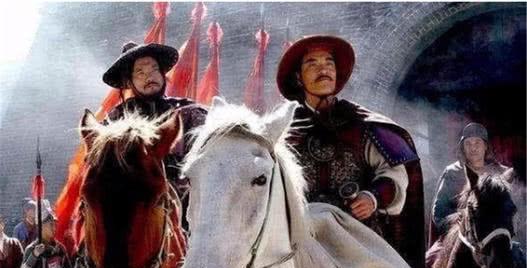In the last years of the Ming Dynasty, the systemic crisis could not be solved, and the desperate peasants staged a large-scale uprising, ready to earn a living for themselves. At that time, there were two groups of rebel troops that attracted the most attention, namely Li Zicheng and Zhang Xianzhong. Zhang Xianzhong established the Daxi regime in the southwest, and Li Zicheng attacked Beijing to directly destroy the Ming Dynasty. After Li Zicheng sat on the dragon chair, he did not establish a stable and sustained Dashun regime, but was quickly defeated by the Eight Banners of the Manchu Qing Dynasty.

Some people attribute the reason for Li Zicheng's failure to Chen Yuanyuan, believing that it was precisely because of Chen Yuanyuan that Wu Sangui's rebellion led to the fall of the land of Shenzhou to the hands of foreign tribes. This is, of course, absurd. There were many reasons for Li Zicheng's failure, such as corruption and extravagance at the top; after Li Zicheng established Dashun, he still implemented the policy of fighting landlords during the uprising, and did not become one with scholars, squires, etc., and led these low-level ruling classes to the Manchu Qing. But at that time, the million-strong army of Dashun was defeated in a short period of time, and it was also related to a natural disaster at that time!
This natural disaster is the plague! The plague has a terrible name in Europe called the Black Death, which killed tens of millions of people. At that time, the Xiaoice river period had entered, there was a national drought, and the plague began to spread nationwide. According to relevant written records, in some areas the plague has caused "children in the neighborhood to be lost", which shows the horror. Ancient medical conditions were backward, there was no means of cure, and the plague was very contagious, so it was very destructive. The Dashun regime had just been established, eager to resist the Manchus and Southern Ming, and did not pay enough attention to this disaster.
And the Da Shun army has a large number of them, but in the face of infectious diseases, it is not only not an advantage, but can increase the speed of disease transmission. Plague spreads rapidly in densely populated armies, not only causing a large number of non-combat attritions, but also greatly disintegrating the army's ability to fight and the will to fight.
In contrast, the Manchu Qing government was mainly cavalry, but the main way of spreading the plague was that fleas hated the smell of horses, so to some extent greatly reduced the probability of the Manchu army infecting the plague. In this case, the Manchu Qing army gained a huge advantage. Under the attack of various disasters, the Great Shun Army naturally made it worse.
In short, the demise of a regime and the defeat of an army are not the result of a single cause, but a combination of multiple causes. The defections of Chen Yuanyuan and Wu Sangui should not be fully responsible for the demise of the Dashun regime. Of course, the plague should not be fully responsible, it is only one of the triggers, but it can give us another perspective on the problem. That's one reason we're interested in history, isn't it?